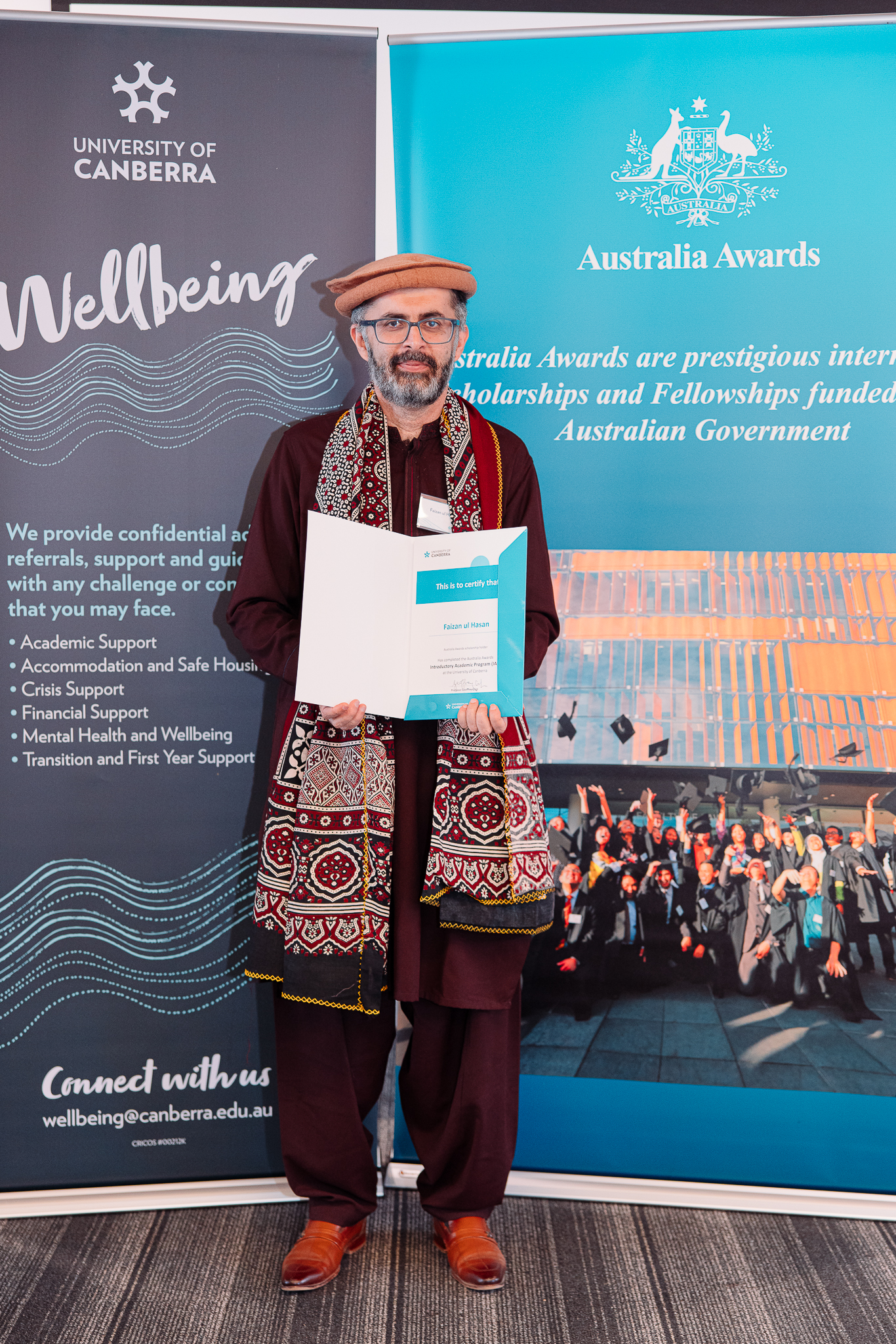Kailey Tonini
29 November 2022: University of Canberra PhD student Faizan Ul Hasan recently participated in a United Nations Educational Scientific and Cultural Organization (UNESCO) Pavilion panel discussion on indigenous water resources management technologies for sustainable livelihoods.
He joined panelists from around the world who presented global, regional, and local perspectives on the topic, as part of the online panel event.
Mr Hasan is a PhD candidate at the University’s Centre for Change Governance (which will be renamed Centre for Environmental Governance from 1 January 2023) within the Faculty of Business, Government and Law.
His thesis explores the intersection of science, policy and practice for sustainable groundwater governance in Pakistan to help achieve agricultural water security.
Mr Hasan says water management has become a critical challenge in the climate crisis.
“The current La Niña has seen abnormally large amounts of rain in short periods cause devastating floods here in Australia and overseas, while other regions remain bone dry. Temperature variations and humidity are affecting the agriculture industry and variations in surface water are increasing groundwater dependency and use,” he said.
“Indigenous water systems and management techniques, employed by native cultures independently around the world, were made to be eco-friendly and cost-effective, making them highly valuable for communities particularly vulnerable to climate change, or who may not have the resources to implement new technologies.”
The panel included well-respected experts from around the world, including Dr Muhammad Ashraf, Chairman of the Pakistan Council of Research in Water Resources and Mr Youssef Filali-Meknassi, Director of UNESCO.
Mr Hasan’s contributions focused on how indigenous Pakistani water systems are being affected by climate change or if they are acting as climate resilient options.

“We have to ask why indigenous systems are continuing to survive,” he said.
“The simple answer is that these were developed with the wisdom and knowledge of local people who are surviving despite facing many climate-induced disasters, like droughts and floods. We have two options: either ignore these systems, keep using modern technologies indiscriminately and face the music of climate change – or protect these systems and become climate resilient communities.”
The key takeaway for Mr Hasan was that climate change is calling for more local solutions and the interface of science, policy, and practice may help in making these systems a climate resilient option.
He says there are primarily three main stakeholders responsible for the preservation of indigenous systems:
- Scientists, who have to incorporate science into these systems; this science should be understandable to other actors and can be translated into policy actions;
- Policymakers, who work with researchers and other stakeholders to develop policies that can be converted into governance practice;
- Communities, who have to protect these systems by treating them as communal property.
Mr Hasan described his participation in the panel discussion as a privilege and honour.
“COP27 is one of the biggest events in the world, so to bring the name of UC to such a platform was an unbelievable experience,” he said.
Director of the Centre for Change Governance, Dr Darren Sinclair, is also Mr Hasan’s supervisor and says he is incredibly proud of his PhD candidate.
“This opportunity for Faizan is testament to his passion for water management and commitment to his research – his connections at UNESCO and Pakistan Council of Research in Water Resources created this opportunity,” Dr Darren Sinclair said.
“It’s fantastic for the University of Canberra to be contributing to international discussion on the critical issue of water management with the climate emergency.”


